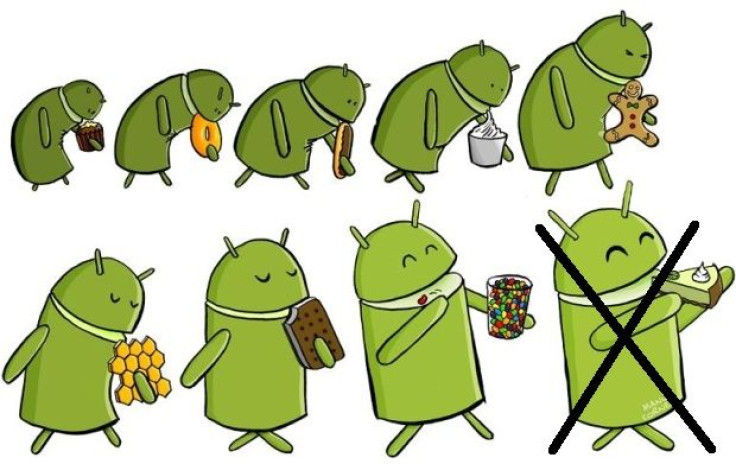Android 5.0 Key Lime Pie On Hold As Google Prepares To Release Android 4.3 Jelly Bean?

As rumors propose the release of Android 5.0 Key Lime Pie may be delayed, new reports suggest that Google is actually preparing to continue the Jelly Bean line with Android 4.3 for its next operating system.
Android Police founder Artem Russakovskii reports that he found code in Google’s internal server logs that suggests the software company is currently testing Android 4.3 Jelly Bean on Nexus 4 and Nexus 7 devices.
Evidence From Google?
Having traced the logs back to two different IP ranges related to Google employees, Russakovskii says he also found the build number JWR23B, which was recently discovered among comments in Google's Chromium bug tracker, posted by a developer named "aruslan." Noting how Android build numbers tend to start with the same letter as the first letter of the Android version name, he considers this confirmation that Android is moving forward with another Jelly Bean version rather than releasing an entirely new operating system.
Months of rumors have insisted that the next-generation Google operating system would be called Android 5.0 Key Lime Pie or at least named after some dessert or candy that starts with a K. However, with no confirmation from Google, this tidbit actually remains a mystery. Most accepted Android 5.0 as the version number for the upcoming OS after a benchmark for a Sony device running Android 5.0 surfaced in November 2012, but, according to Russakovskii, that was far too early for Google to have zeroed in on a name for its operating system.
“Google doesn’t assign version numbers to Android releases until a short time before they’re set to be unveiled. We’re talking weeks or a couple of months max,” Russakovskii said in his report.
What Happened To Android 5.0?
Internal sources have reportedly told Gadgetronica that the tech giant decided to put its next operating system on hold for at least two to four months in order to allow current devices time to update to already released software. Android reported in April that Jelly Bean currently runs on just 25 percent of devices, with most of those devices still running the older Android 4.1 versions. Twenty-nine percent of devices run Android 4.0 Ice Cream Sandwich, and a considerable 40 percent of devices still run the practically obsolete Android 2.3 Gingerbread.
However, it is completely plausible that Google never intended to release a new operating system at this time. Android Police's Ron Amadeo reminds that Google’s unveiled systems tend to be often much different than what rumors consider.
Jelly Bean was also proposed as Android 5.0 during its prerelease in 2012, which seemed logical after Android 4.0, but it was ultimately announced as Android 4.1. Ice Cream Sandwich was proposed as either Android 2.4 after the smartphone designated Gingerbread or Android 3.4 after the tablet designated Honeycomb, but it was announced as Android 4.0 and was able to power both smartphones and tablets. Even Honeycomb was proposed as Android 2.4 but was announced as Android 3.0, and Gingerbread was proposed as Android 3.0 but was announced as Android 2.3.
Future Remains Uncertain
We expect news about Google’s plans for Android at its I/O conference in May. But many are already warming up to the idea of Android 4.3. Sidhtech notes that Google’s recent Gmail is version 4.3. According to the tech website, Gmail version numbers tend to coincide with Android operating system numbers. Both Gmail 4.2 and 4.1 were reportedly leaked just prior to the unveiling of Android 4.2 and 4.1, respectively.
Additionally, Reddit user danrant has also discovered a number of Android 4.3 developer discussions, not only referencing build numbers that begin with J, but also referencing codenames such as JellyBeanMR2.
Tech Radar proposes that a four- or five-month delay could put Android 5.0 in direct competition with iOS7, which is expected to release in September. We expect to see Apple’s next-generation operating system unveiled at the Apple Worldwide Developers Conference in early June, which is less than a month after Google I/O.
© Copyright IBTimes 2024. All rights reserved.












